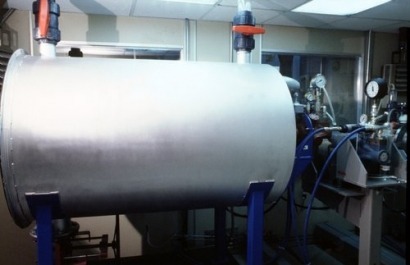
The UK Green Investment Bank (GIB) has published its first market report on anaerobic digestion (AD). The report is the first of its kind and gives an overview of the issues and challenges facing the AD market as well as identifying opportunities for investment.
AD is a natural process in which micro-organisms break down organic matter into biogas and digestate. The process is used to manage waste as well as generating renewable energy and avoids food and agricultural waste going to landfill. The process has been adopted by the government as a vital part of its overall waste policy.
The new report will help to inform the GIB’s strategy on debt investment in the sector as well as being a useful resource for the industry and investment community. The bank is also actively investigating the opportunities for debt financing for AD projects. Government research has indicated that AD could deliver between 3 and 5 TWh of electricity by 2020 but the industry itself remains concerned about sources of funding, particularly in relation to senior debt finance.
“AD is rightly at the heart of the Government's waste policies and GIB's waste investment strategy” said Adrian Judge, the bank’s Managing Director for Waste and Bioenergy. “It provides a green and efficient way of managing waste, whilst providing both energy and fertiliser. For organic waste, AD is a cost-effective and sustainable waste management option. Although the UK market is still young and there are challenges for projects in delivering a consistent revenue stream, well operated AD facilities have the potential to achieve attractive commercial rates of return to both equity and debt providers.”
Key findings of the report include the identification of growing opportunities within the sector as well as the critical factors essential to project success and funding requirements such as capital investment and debt funding.
Further information:

